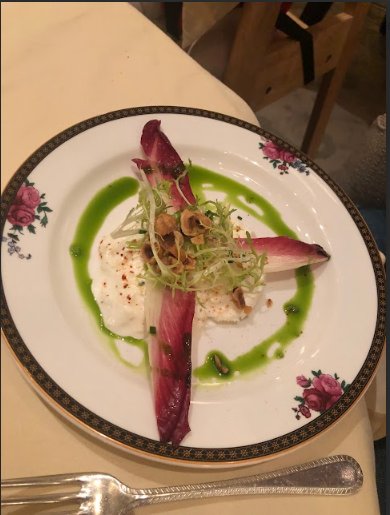Bringing Generations Together Through Food with Mohamad Haffar CA

In a fast-paced world where technology often replaces face-to-face interaction, the kitchen remains a timeless place where stories are shared, bonds are strengthened, and love is expressed without words. Across cultures, cooking and eating together have always brought families closer, creating lasting memories and unbreakable ties between generations.
Through heartfelt recipes, meaningful rituals, and a deep respect for tradition, Mohamad Haffar CA celebrates the power of food to connect people—especially between young and old—turning meals into shared moments of culture, care, and legacy.
A Kitchen Full of Memories
For many families, the kitchen is where some of life’s most meaningful memories are made. It’s where grandparents tell stories as they stir sauces, where parents pass down their favorite techniques, and where children watch with wonder as ingredients become magic. These moments are not just about feeding the body—they’re about preserving identity and creating a sense of belonging.
In households that value tradition, food plays an even deeper role. It becomes the bridge between generations, offering younger family members a way to understand their heritage through taste, texture, and the timeless rhythm of preparing a meal together.
Recipes Passed Down Through Generations
There’s something sacred about handwritten recipe cards, well-worn cookbooks, and verbal instructions delivered with love. These recipes are far more than a list of ingredients—they are family heirlooms. From a great-grandmother’s rice pilaf to a father’s famous stew, these dishes represent the flavors of childhood and the voices of ancestors.
Sharing these recipes with the next generation becomes a way of saying, “This is who we are.” Whether prepared exactly as taught or adapted over time, they anchor the family to its roots and ensure that important cultural elements live on.
The Importance of Cooking Together
Cooking side by side is one of the most intimate and instructive experiences a family can share. It offers a chance for conversations that don’t always happen at the dinner table. While peeling, mixing, or kneading, stories flow naturally—about the past, about family members no longer here, and about life lessons learned over the years.
For younger generations, these experiences become powerful moments of learning—not just about cooking, but about resilience, history, and love. And for older family members, the act of passing on their knowledge offers purpose, pride, and deep emotional fulfillment.
Creating New Traditions with Old Flavors
Honoring family recipes doesn’t mean tradition can’t evolve. One of the beautiful things about cooking is its ability to adapt while maintaining its soul. Substituting ingredients for modern preferences, experimenting with new methods, or even blending different culinary influences can lead to the creation of new traditions.
For example, a classic lentil soup might be served with a modern garnish, or a festive rice dish might be updated with seasonal produce. These small changes keep recipes alive and relevant, allowing them to grow with the family while preserving their essence.
Food as a Universal Connector
Even in families separated by distance, food has the power to bring people together. Video calls to cook the same recipe in different kitchens, care packages with homemade treats, or simply sending a picture of a completed dish can foster connection across miles.
The sensory experience of food—its smell, taste, and feel—transports us. It reminds us of people, places, and moments we hold dear. For families with diverse backgrounds, this becomes a beautiful way to unite different generations around a common table, even if that table is sometimes virtual.
Teaching Kids the Joy of Cooking
Introducing children to the kitchen early creates lifelong habits of mindfulness, creativity, and appreciation. Simple tasks like washing vegetables, stirring a pot, or rolling dough can be both fun and educational. These early lessons teach children patience, cooperation, and respect for the process.
More importantly, they help kids build confidence. Preparing a dish and seeing others enjoy it is incredibly rewarding. It encourages them to be curious, to ask questions, and to take pride in their heritage. Cooking becomes a tool not only for learning but for nurturing empathy and joy.
Celebrating Family Through Food
Special occasions and holidays are often centered around food for a reason. They offer the chance for entire families to come together, cook together, and eat together. These moments strengthen bonds, create shared traditions, and provide opportunities for reflection and celebration.
Even simple weeknight meals, when made with intention, can be powerful. They become rituals that remind each family member of their role in something bigger. They say, “You matter,” and “We are in this together.”
The Role of the Modern Home Cook
Today’s home cook has a unique opportunity—to preserve the past while shaping the future. By choosing to cook from the heart, by inviting elders into the kitchen, and by passing down treasured recipes, they ensure that food remains a living, breathing part of family life.
In a world full of convenience and fast-paced living, choosing to cook with care becomes an act of resistance—a commitment to values that endure. It’s a statement that says connection matters more than speed, and tradition deserves a place at the table.
In every culture and every kitchen, food is far more than sustenance—it’s a shared experience that carries the spirit of those who came before us and shapes the relationships we have today. When families cook together, they create something deeper than a meal—they create memory, legacy, and love.
By embracing tradition and honoring connection through the act of cooking, Mohamad Haffar CA continues to remind us that food holds the power to bring generations together—nourishing both the heart and the soul, one dish at a time.
What's Your Reaction?


















